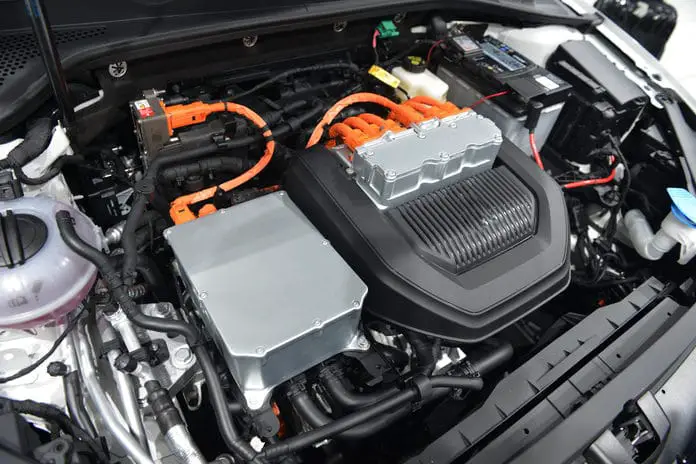
Your automotive battery is probably the most overlooked and underrated component of your car yet it is the most important piece of hardware on a vehicle. Without your car battery, it will be impossible for your car’s engine to start and run.
The primary purpose of your car battery is to produce enough electric energy to ignite the spark plug of the engine and combust the fuel, allowing the engine to run. Your automotive power cell also powers all the electronic components of the vehicle such as lights, radio, air conditioning unit and all sorts of electronic units.
If you are an everyday driver and you also have this question in mind. Why would my car battery keep dying? Then you are in the right place!
In this automotive battery guide, we are going to try to answer that question and tackle the most common reasons why your car battery keeps draining.
This guide will help you understand the behavior of your car battery and learn the factors that greatly contribute to your battery’s failure. Having this information and details will help you address the issue and allow you to take the necessary steps to fix the problem completely.
The Most Common Reasons Why Your Car Battery Keeps Going Dead
If a car battery dies repeatedly, there are plenty of reasons behind. Some these reasons include faulty connections, corrosion or sulfation, bad battery condition, constant power drain, charging issues and more.
To get a better idea about this, the list below will introduce you to the most common causes of a frequently draining auto battery.
1. Flawed Charging System – Alternator Can’t Provide Enough Energy
If there is something wrong with the charging system where the alternator can’t provide enough energy to charge the car battery. A faulty charging system is often caused by loose connections, overstretched belts or heavily worn out tensioner, reducing the alternator’s capacity to provide the amount of energy to charge the car battery.
A sign that may indicate a faulty charging system is when the battery dies while the engine is running or you are driving.
2. Drastic Temperatures – Extremely Hot Or Cold Weather Conditions
Extremely high or drastically low temperatures can reduce its toll on car batteries. Very high like Florida or very low temperatures triggers sulfation which is one of the most common factors that greatly contributes to the death of car batteries.
Extreme temperatures can’t kill a car battery, but it can greatly affect its life worsen small battery issues that will eventually lead to the battery’s death.
3. Corrosion Issues – Corroded Battery Terminals And Plates
Aside from sulfation, corrosion is one of the major problems that lead to battery failures. It is a condition that weakens and prevents battery terminals and plates to function the way that they should be.
Eliminating the capability of the battery terminals and plates to store charge and conduct electricity. This leads to sudden battery failure that may also lead to frequent dying of the battery.
4. Persistent Power Drain – Severely Draining Battery Charge
Leaving electronic components of the car tuned ON when the engine is not running forces the battery to shoulder all the power they require. This drains the car battery faster because when the engine is not running all electronic components in the car will solely rely on the battery for power.
If a battery is always discharged, it won’t have the energy it needs to provide power for the vehicle resulting in frequent battery failure.
5. Short Drives – Frequent Starting And Stopping Of The Engine
The heaviest task that a car battery has is to provide power to ignite the spark plug and start the engine. Having too many short-distance drives that frequently start and stop your car’s engine forces the car battery to work harder which weakens the battery plates.
If the engine keeps on starting then stopping, the alternator will not have the time it requires to recharge the car battery. As a result, the battery will not have the opportunity to regain the charge it lost, because it produces a great amount of energy than it receives.
An Aging Or Old Car Battery Will Likely Die Frequently
Automotive batteries normally have three to four years of life expectancy, and as they age, they eventually wear out and lose their capacity. All the wear and tear that’s taking its toll on the battery is greatly reflected in its performance leading to failing performance.
In this case, having power cell that keeps on dying may be caused by the battery’s old age. However, if you have a new battery installed on your vehicle and it keeps on dying. That’s a problem that you have to sort out as soon as possible.
If it doesn’t die due to old age, then it shows that there something else that’s killing it…
Conclusion
Those are the basic aspects that you have to learn and understand if you are still asking the question. Why does my car battery keep dying? One of the main reason that you can check first is the age of the battery. Since car batteries deteriorate over time, it will come to point where the battery will just die all of a sudden. However, if your car battery is still good shape or a new one.
The issue will demand your attention because it shouldn’t be that way. If a new car battery keeps draining, then it’s something else that repeatedly kills your power cell. In cases like these, your best option is to give it your full attention and try to figure everything out at the soonest time possible.





